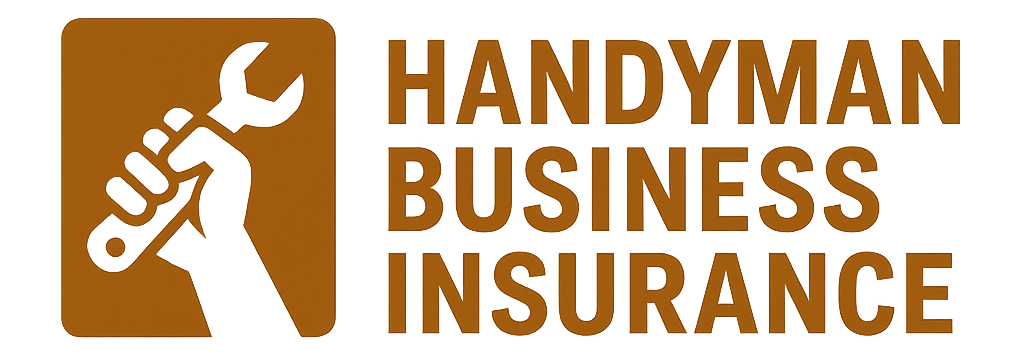- Opening : Mon-Fri 08:00 - 17:00
How to Read & Understand Your Handyman Insurance Policy
September 15, 2025
Uncategorized
Running a handyman business in California requires more than just skill and experience. To operate legally and protect yourself, your employees, and your clients, it is essential to understand the insurance regulations and licensing requirements specific to the state. Failing to comply with these rules can result in fines, legal trouble, or denied claims, making insurance a critical part of your business operations.
This article provides a comprehensive overview of California’s handyman licensing requirements, insurance obligations, and tips for ensuring your business remains compliant and well-protected.
Licensing Requirements for Handyman Businesses
In California, the Contractor’s State License Board (CSLB) regulates handyman and contractor licensing. While some minor tasks may not require a license, any project exceeding $500 in total cost for labor and materials requires a valid contractor license. This rule applies to individual jobs as well as a series of smaller projects that collectively exceed the $500 threshold.
Types of Licenses
Handymen generally qualify under one of the following license types:
Class B – General Building Contractor: Covers multiple trades and larger-scale projects.
Class C – Specialty Contractor: Covers specific trades such as plumbing, electrical, or carpentry.
The type of license you need depends on the scope of your work. If you perform a wide range of tasks across multiple trades, a Class B license is usually required. For specialized services, a Class C license suffices.
Eligibility Criteria
To obtain a contractor’s license, applicants must meet several criteria:
Be at least 18 years old.
Hold a Social Security Number or Individual Taxpayer Identification Number.
Have four years of journey-level experience in the trade within the past 10 years.
Pass the Law and Business exam as well as a trade-specific exam.
Submit a $15,000 contractor bond.
Provide a Certificate of Workers’ Compensation Insurance or proof of self-insurance if applicable.
Licensing ensures that handymen are qualified, professional, and capable of completing projects safely and reliably.
Mandatory Insurance for Handyman Businesses
Insurance is a vital part of operating legally and protecting your business in California. Certain types of coverage are required by law, while others are strongly recommended to reduce financial risks.
1. General Liability Insurance
General liability insurance is often mandatory for licensed handymen and covers:
Third-party property damage caused during a project
Bodily injury to clients or bystanders
Legal defense costs if a claim arises
Most insurers in California recommend a minimum coverage of $1 million per occurrence for handymen, with higher limits for larger or high-risk projects.
2. Workers’ Compensation Insurance
If your business has employees, California law requires workers’ compensation insurance. This policy covers:
Medical expenses and lost wages for injured employees
Employer liability for work-related injuries
Even if you employ only a few workers or hire temporary help for specific projects, maintaining workers’ compensation coverage is essential. Sole proprietors without employees may be exempt, but it is advisable to consult the California Department of Industrial Relations to confirm eligibility.
3. Surety Bond
A $15,000 contractor bond is required to obtain a license. This bond protects clients in case your business fails to complete a project or violates state regulations. The bond must be purchased from a licensed surety company.
4. Optional Coverage
While not legally required, additional insurance policies can further protect your handyman business:
Commercial Auto Insurance: Covers vehicles used for transporting tools or materials.
Tools and Equipment Insurance: Protects against theft or damage to your essential tools.
Inland Marine Insurance: Covers tools and equipment while in transit.
Business Owner’s Policy (BOP): Bundles general liability and property insurance with optional business interruption coverage.
Errors & Omissions (E&O) Insurance: Provides protection against claims arising from mistakes or faulty workmanship.
These coverages help handymen manage financial risks, avoid out-of-pocket expenses, and maintain client trust.
Local and City Regulations
In addition to state requirements, some cities and counties in California have their own licensing and insurance rules:
San Francisco: Businesses must register with the Office of the Treasurer and Tax Collector and may need additional permits.
Los Angeles: Specific permits or local licenses may be required depending on the type of work performed.
Handymen must verify local requirements before starting projects to remain compliant and avoid fines or penalties.
Tips for Staying Compliant
Keep Policies Updated: Regularly review and renew insurance coverage to meet state and local requirements.
Maintain Documentation: Keep copies of licenses, bonds, and insurance certificates for inspections or client requests.
Communicate with Your Insurer: Notify your insurance company about new services, employees, or high-risk projects to avoid coverage gaps.
Invest in Safety Programs: Implementing employee training and safety protocols can reduce claims and may qualify your business for insurance discounts.
Final Thoughts
Understanding insurance regulations and licensing requirements is crucial for handyman businesses in California. Obtaining the appropriate contractor license, maintaining mandatory insurance, and following local rules ensures your business operates legally while protecting yourself, your employees, and your clients.
For handymen in California and across the USA seeking reliable insurance solutions, visit Western Insurance
Recent Posts
Insurance Regulations and Licensing for Handyman Businesses in California
How to Read & Understand Your Handyman Insurance Policy
September 15, 2025
Are There Insurance Discounts Handymen Can Qualify For?
September 15, 2025
Have Any Question?
Lorem ipsum dolor sit amet, consecte adipiscing elit, sed do eiusmod tempor incididunt ut labore et dolore
- (+021) 231 - 3326
- support@domain.com

